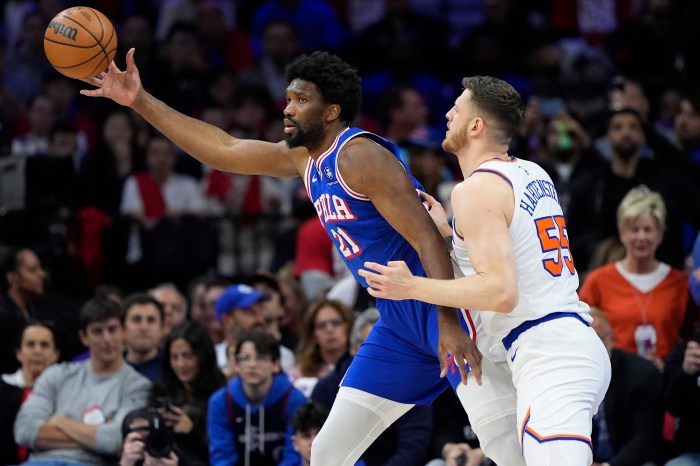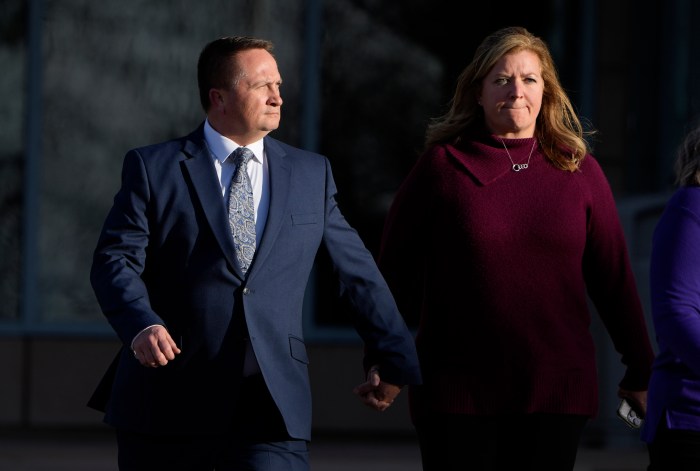 A man who took dirty pictures of women’s private areas on the Green Line will face no repercussions. Credit: Nicolaus Czarnecki/Metro
A man who took dirty pictures of women’s private areas on the Green Line will face no repercussions. Credit: Nicolaus Czarnecki/Metro
Outrage ensued Wednesday after the state’s highest court ruled that a man who secretly photographed up the skirts of women riding the MBTA did not violate state law because the women were not “nude or partially nude.”
The Supreme Judicial Court threw out the state’s charges against Michael Robertson, 31, of Arlington, who took photos and video up female riders’ skirts and dresses as they traveled on the Green Line in 2010.
The ruling was based on the argument that women did not have a legal expectation of privacy on the trolley and were not partially nude as defined under current law.
Transit Police arrested Robertson in a August 2010 sting after receiving reports that he was using his cellphone to capture the images. Robertson filed a motion to dismiss the case. A Boston Municipal Court judge denied that motion, but the high court disagreed.
 Michael Robertson’s booking photo from his 2010 arrest. Photo: TPD
Michael Robertson’s booking photo from his 2010 arrest. Photo: TPD
“[W]e interpret the phrase, ‘a person who is … partially nude’ in the same way that the defendant does, namely, to mean a person who is partially clothed but who has one or more of the private parts of body exposed in plain view at the time that the putative defendant secretly photographs her,” Justice Margot Botsford wrote in the eight-page decision.
“A female passenger on a MBTA trolley who is wearing a skirt, dress, or the like covering these parts of her body is not a person who is ‘partially nude,’ no matter what is or is not underneath the skirt by way of underwear or other clothing.”
A spokesman for Suffolk County District Attorney Daniel Conley called the decision a “blow to privacy,” a sentiment echoed by Senate President Therese Murray, who said she was “stunned and disappointed” by the ruling.
“We have fought too hard and too long for women’s rights to take the step backward that they did today. I am in disbelief that the courts would come to this kind of decision and outraged at what it means for women’s privacy and public safety in the Commonwealth,” said Murray.
“I will speak with the members [Thursday] in caucus and the Senate will act swiftly. Massachusetts is better than this,” Murray said.
MBTA Spokesman Joe Pesaturo said Transit Police support efforts to work with the legislature in rewriting the statute.
Though unsettling, the underhanded activity doesn’t seem to be a widespread problem on the T, which reported six cases of secret photography in 2011, four cases in 2012, and three cases last year.
To put the numbers in context, there was an average of 395 million passenger trips on the MBTA in each of those years.
“The good news is that everyone seems to be on the right side of this issue – that the law needs to be reformed, and I think that it will move quickly,” said Gina Scaramella, the executive director of the Boston Area Rape Crisis Center, which has worked to extinguish sexual harassment on the T.
“This is a form of sexual harassment that shouldn’t be tolerated, and we’re very glad that there will be swift action to make this awful behavior illegal behavior,” Scaramella said.
The ruling begs questions about whether would-be peeping Toms will now feel safe taking aim at unsuspecting women.
“I don’t think somebody who hasn’t already been doing it would decide this is a good time to start,” said Scaramella. “But it certainly is emboldening for someone who is doing these behaviors to feel like they are protected by the law.”
Anti-harassment organization Hollaback!Boston weighed in on the issue of expectation of privacy, and said that like harassment, “up-skirt photography is not intended to benefit the subject, only the photographer, while a true compliment would do the opposite”
“Unlike snapping a photo of a stranger, intentionally or in the background, where that person is fully clothed and presenting themselves as they see fit in public, up-skirt photography disregards the intent of the subject – getting dressed to keep parts of their body private – to place higher value on the desire of the perpetrator,” Hollaback! said.
“Like harassment, it’s not a compliment; up-skirt photography is not intended to benefit the subject, only the photographer, while a true compliment would do the opposite.”
Follow Morgan Rousseau on Twitter: @MetroMorgan
Follow Metro Boston on Twitter: @MetroBOS


















